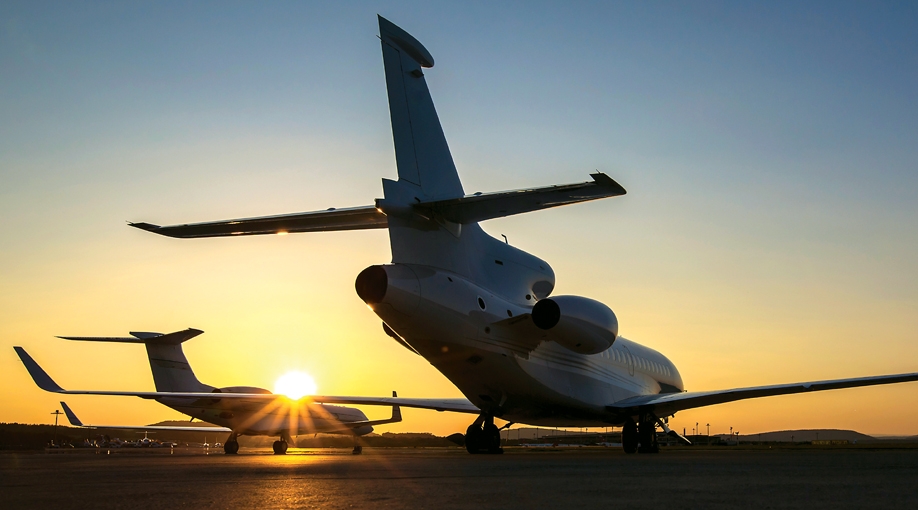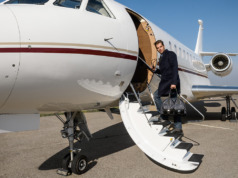
Whether you are a first-time or experienced charter customer, or an aircraft owner looking for alternative or supplemental lift, you are familiar with the advantages of business jet travel. However, before you sign on the dotted line for your next charter trip, there are some key issues that you and your aviation manager should consider when negotiating with a charter company.
What You Need to Know About Aircraft Charter – Before You Fly
Whether you are a first-time or experienced charter customer, or an aircraft owner looking for alternative or supplemental lift, you are familiar with the advantages of business jet travel. However, before you sign on the dotted line for your next charter trip, there are some key issues that you and your aviation manager should consider when negotiating with a charter company.
Charter Operators & Brokers
Aircraft charter operating companies range from large (75 or more aircraft) to very small (one or two aircraft), and their fleet composition can range from ultra-long-range large aircraft to small propeller aircraft. While you can book directly with any charter operator, many smaller charter operators work through the various charter brokers. These brokers function much like travel agents, shopping your trip among a variety of charter operators before presenting it to you for acceptance and confirmation. Larger charter operators also work through brokers, but often prefer to provide full service directly, from the initial contact with the charter customer throughout the flight.
Contracts
A charter contract may be for one flight, a series of flights, and/or for multiple flights on a single aircraft, or for multiple flights on multiple aircraft.
Single flight charter agreements typically are negotiated with a charter broker, not with the actual charter operator. You will be presented with a quote from the charter broker containing some terms of payment and a “General Terms and Conditions” document from the charter certificate holder, similar to that which an airline posts on its website. This tends to be a “take it or leave it” offer.
In a Block Charter Agreement, you purchase a set number of hours per year in a certain type of aircraft, usually directly from the charter operator. Because this may represent a significant amount of business, especially for a small operator, you may have substantially more leverage to negotiate the terms of an agreement than you would with just a single trip.
A more recent type of charter program (similar to block charter) is the “Jet Card Program,” in which you deposit a set amount of money, from which the charter operator or broker draws down over a set term. These programs usually are offered by the larger charter companies and allow you to charter any of its fleet aircraft with variable rates depending on aircraft size. However, broker programs draw upon a range of charter operators, often required to meet an industry-recognized safety rating from an established auditor such as ARGUS or Wyvern (see below).
Some card programs have a set term, while others allow draw-downs to continue until the balance reaches zero. With the latter, you can continue to fly at your negotiated rates for the remainder of the term by replenishing the balance. Jet card companies usually are not as willing to negotiate business terms, but often will agree to adjust insurance or default provisions via a separate amendment. Operators who offer jet cards often subcontract to other charter operators for additional lift during their busiest times.
Charter Safety Screening
All charter operators must be licensed by the FAA, which requires that they hold a Part 135 Air Carrier Certificate. In addition, there are several organizations that audit Part 135 air carriers and rate their safety practices and records. Wyvern and ARGUS are two such companies. Both companies’ websites allow you to check the safety rating of any particular operator in their program. It is important that you request the name of your trip’s actual operator, even when you have a contract directly with a charter operator. This will ensure that the particular charter company that is operating your trip complies with your safety standards, and that if it has subcontracted the flight to another operator, that operator also meets your safety standards.
If you have engaged a charter broker, be certain to obtain the name of the operator. You also can request that charter companies or brokers engage only Wyvern-registered or ARGUS-rated (a Gold Plus or Platinum ARGUS rating indicates the operator has earned the International Standard for Business Aircraft Operations certification) charter operators for your flights.
Certificate of Insurance
To make adequate provisions for insurance, you should request that the charter company name you, the customer, as an additional insured with respect to liability coverage — not only for you, but also for any officers, directors, shareholders, members, and/or managers, even if you own an aircraft and your own policy covers flights aboard non-owned aircraft. Although you are not operating the aircraft, you still have a liability risk in case of an accident, since everyone involved usually is named in a lawsuit.
The additional insured status also should include a waiver of subrogation by the insurance company in your favor, with respect to the aircraft’s physical damage coverage. You should request a clause stating that the insurance provided by the charter company is primary to any other insurance available to you, and that written notice of deletion, cancellation, or material changes in coverage for the charter company’s insurance policy be provided to you in advance.
Request that the charter company provide you with a Certificate of Insurance from the insurer verifying these coverages before the flight. Be certain there is adequate insurance coverage for the size of the aircraft and the type of mission. Small aircraft insurance coverages vary from $50-$100 million and large aircraft could be $300 million or more. International flights may require certain minimum coverages or special types of policies; check with your risk manager as to what is required, and then verify that the operator has appropriate coverage.
Should your request for additional insured status be denied, or if the charter operator is hiring third party operators to complete your flight, you have the option of purchasing your own Non-Owned Aircraft Liability policy, if you do not already have such coverage. This will provide coverage for all the aircraft you charter or lease.
Company Default Provisions
As a charter customer, especially if you are making a large deposit in advance for charter hours, be sure any agreement contains provisions describing default of the charter company, including bankruptcy, lateness, or cancellations not caused by force majeure (an extraordinary event or circumstance beyond the control of the parties, such as a strike, war, riot, crime, or severely disruptive weather), and also surrender, suspension, or revocation of the company’s FAA Air Charter Certificate. The charter company or broker should be required to return any unused deposit funds in the case of a charter company default.
Confidentiality
Charter companies and brokers usually will accommodate customer requests for confidentiality provisions, including requiring its personnel to sign individual Confidentiality Agreements. However, if you require the crew to sign, be aware that this may happen at the last minute, even as you are boarding the flight, as final crew assignments may not be made until the day of your flight.
Counsel
Finally, if charter is part of your business plan, do have both experienced aviation counsel and your risk management department or insurance broker review the charter agreements before you fly. This will ensure that you, your executives, and your company, as well as your family and friends, are all properly protected when flying aboard any chartered aircraft. Remember: while insuring personal safety is always first, business safety should never be far behind. BAA
Kathleen H. Breckenridge of Cooling & Herbers, P.C., in Kansas City, MO, is a second-generation aviation attorney. She holds an L.L.M. in Taxation, and serves as Board VP of the National Airline History Museum.




